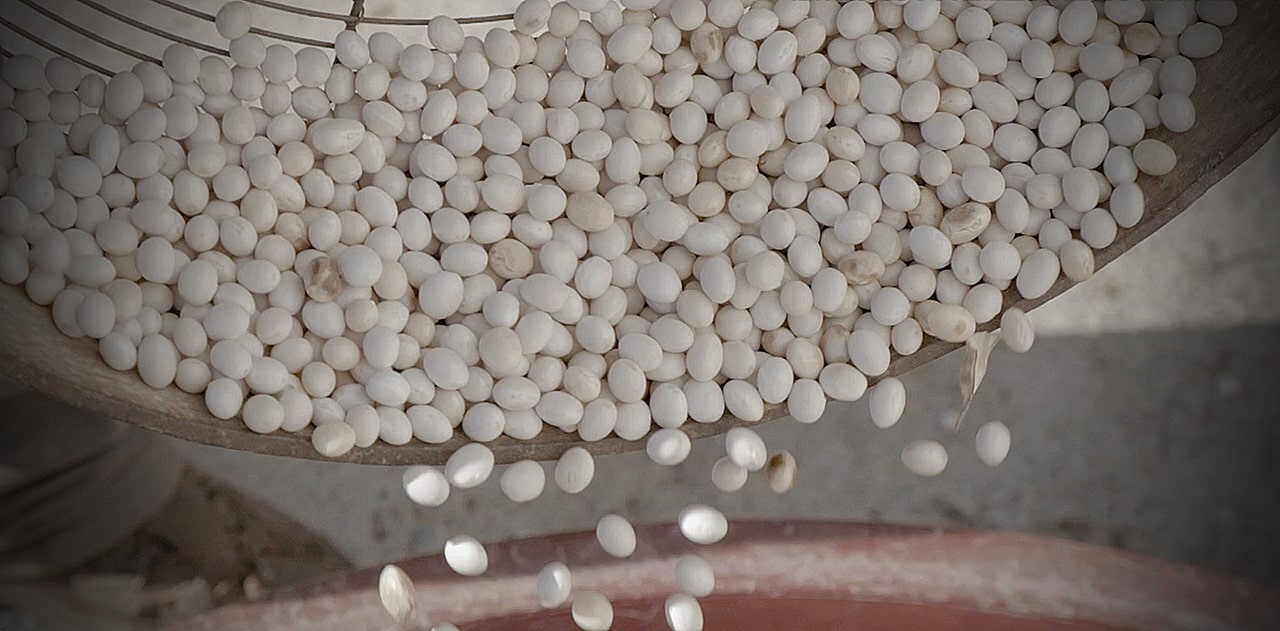The commitment of a group of young people has made it possible to rediscover forgotten crops as well as to turn them into a culinary and tourist attraction.
Abandoned lands have been restored and are nowadays cultivated again to preserve the tradition of Pollino typical crops thanks to these young workers, who were able to turn them into a real culinary attraction for the experimental tourism. This story is about a company named ‘’Pollino Food Experience’’, an agricultural cooperative which was created in April 2018 by Biagio and Antonio Pandolfi who decided, a year before, to grow farms into their owned lands. The decision to invest in the cultivation of the White Poverello bean of Mormanno,together with their friend Giorgio Sola, was the spark that ignited today’s success, which sees the production of this local ecotype (together with other ecotypes as well) almost quintupled.
The main keys to their success were the willingness to enhance a product which has always been connected to the agricultural identity of Pollino, and the idea to send a message to remind people that it is possible to guarantee a high-quality agriculture in an environmentally sustainable manner while respecting the environment in a protected area like Pollino (which is actually one of the largest in Italy).
The flavors of tradition
“Il giardinod’Europa” by Enrico De Luca and “Il campo di Venere” by Giuseppe D’Alessandro were the first two companies to pick up this message, making it possible to begin the adventure of the agricultural cooperative. Today, the production is also extended to other local crops: the local seccagno(dry)chickpea, the Mormanno lentil, the dicoccumspelt (both husked and in form of wholemeal flour), but also peppers and chili peppers (which were already cultivated in the past by the previous generations) which represent the traditional local food of this area.
These workers are strongly committed to enhance the rural culture both by cultivating and spreading information about the products. Fueled by the passion for the Earth and by the will to bring genuine local products to customer’s tables to rediscover the flavors of the past, this company chose to use ancient crops and to process them manually following the tradition.
The power of Memory
«Memory allows us to grow and improve, and we are constantly looking for that» says BiagioPandolfi, chairman of the Pollino Food Experience agricultural cooperative. The company has recently decided to stop the production chain and to acquire a building, the convittovescovile from the Diocesi of Cassanoall’Jonio, in order to transform it into a restaurant and bed and breakfast where the memory of tradition is preserved and enhanced. This step has further contributed to complete this project about local genuine products and sustainable development, a project in which products gofrom the field to the table, creating an immersive experience for the customers who decide to discover Pollino area.
This is a modern and forward-looking project; a project being carried out by young people who « had the courage to stay in their town and to take full advantage of their skills » say the members of the cooperative. These members are young graduates and professionals who have long lived outside Calabria for study purposes and who are nowadays living this «hometown experience» which allows them to express their abilities in their own land « and that is the best that could ever happen to us».
The creation of the De.Co.
The power of the field experience also led to the creation of the De.Co company, a unique project which revolves around the production of the White Poverello bean and which involves three neighboring municipalities in the Valle del Mercure, namely: Laino Borgo, Mormanno and Laino Castello. These municipalities, together with the agricultural producers (the real protagonists of this challenge) succeeded in creating a project which is already oriented towards future challenges, namely the consolidation of productive standards as well as the achievement of agriculture awards and the idea of educating the palate and spreading knowledge about food excellencies.






